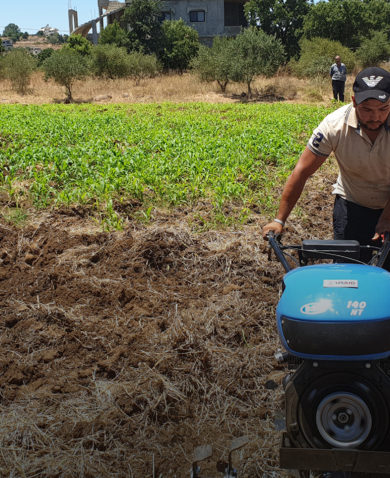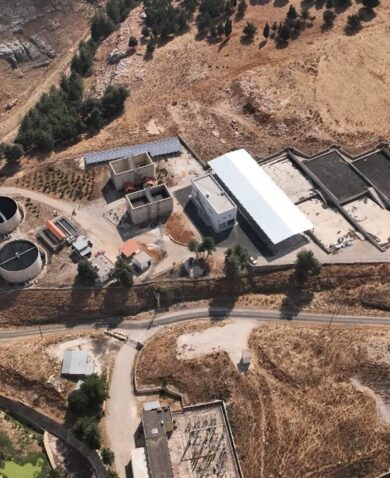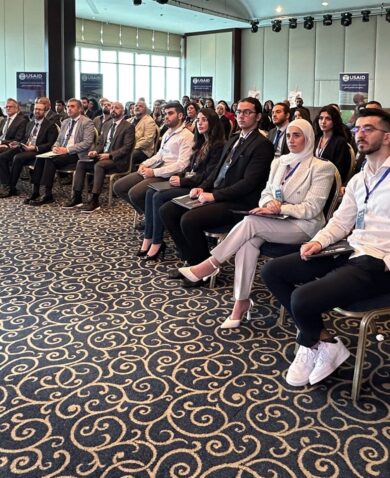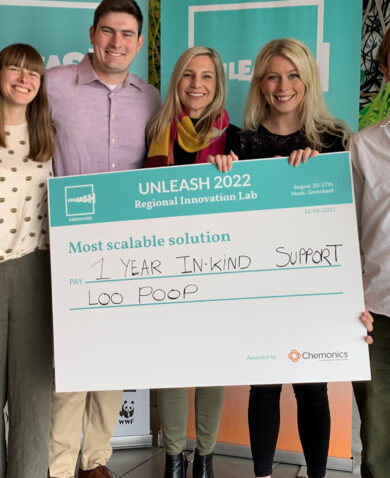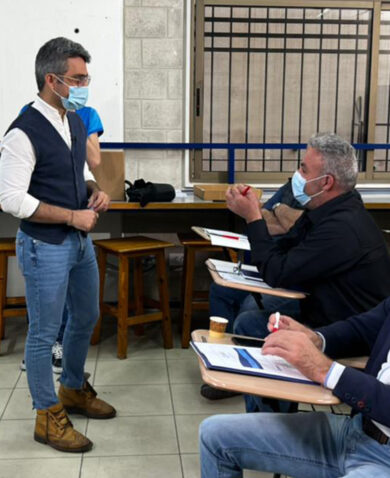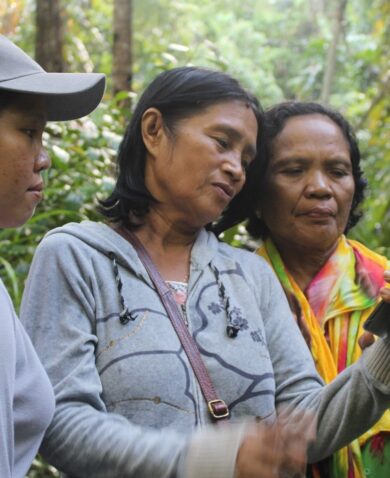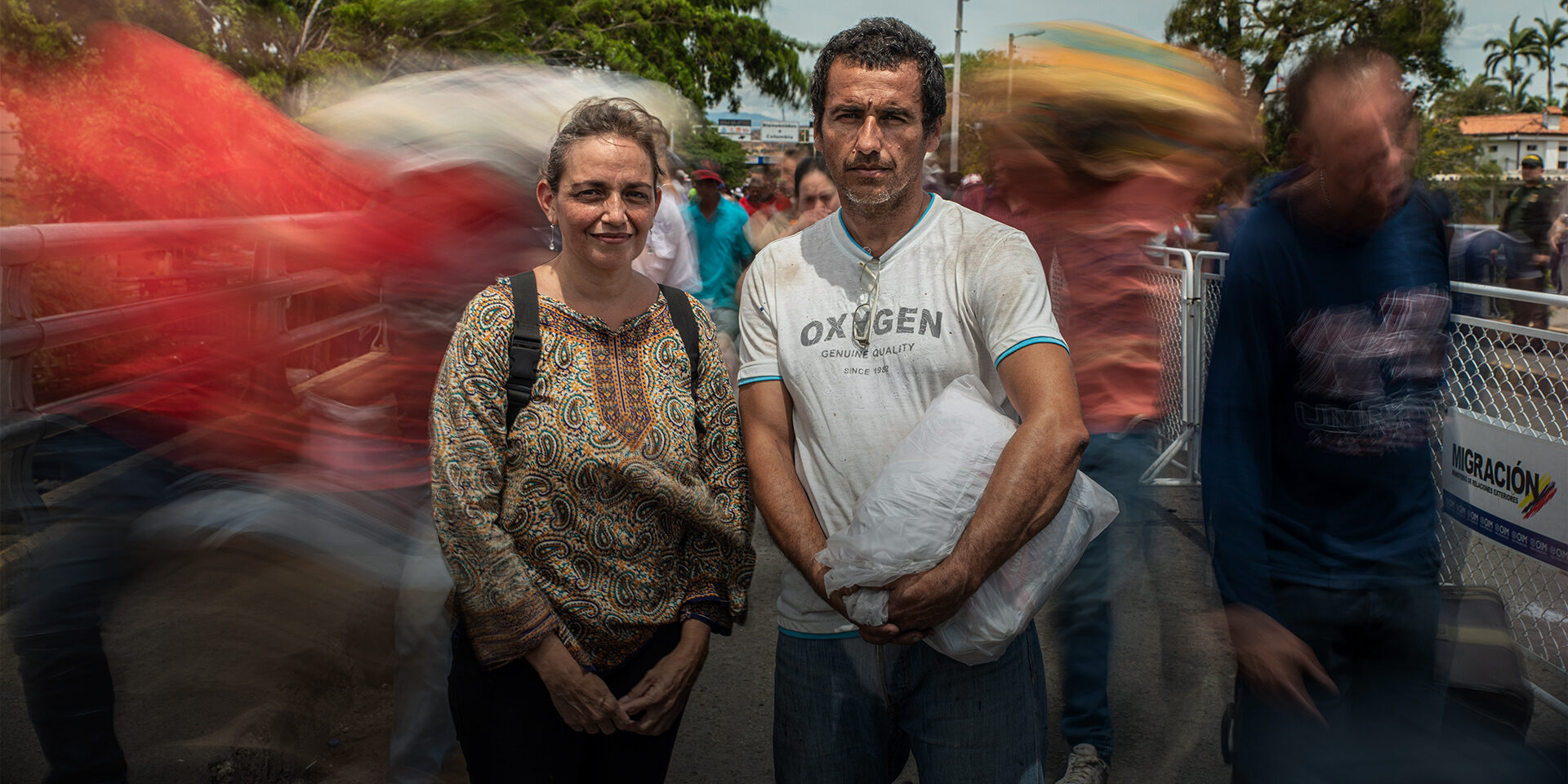
Chemonics News
News: Chemonics Project Selected as 2023 CLA Case Competition Winner
October 4, 2023 | 2 Minute ReadIn Colombia, we are using a collaborative, systems-based approach to support the integration of Venezuelan migrants.
USAID recently announced the winners of their annual Collaborating, Learning, and Adapting (CLA) Case Competition that assessed how USAID projects put CLA into practice for better development programming. The USAID/Colombia Venezuela Response and Integration (VRI) activity, implemented by Chemonics, was selected as one of the winners.
Since 2016, migration from Venezuela has grown steadily, with an estimated 6 million Venezuelan migrants worldwide and approximately 2.8 million in Colombia alone. VRI works with the Colombian government, private sector, and migrant community to respond to the challenges of integration and co-create the institutional, economic, and social architecture of inclusive prosperity. The complexities of mass migration require a whole-of-system response to ensure migrants have access to rights and that there is mutual migrant and receptor community integration. On VRI’s first task order, Integra, we used a CLA approach to support the Colombian government and multi-sectoral actors to improve their response capacity to the challenges of migration management. Through a holistic approach grounded in intentional, robust, and local systems-based CLA and tools like USAID’s 5Rs methodology and co-creation, Integra has collaboratively engaged municipal governments and other system actors to understand system needs, strengthen individual and collective capacities, and co-implement local solutions.
As a result of this collaborative approach, local system actors own the CLA process, and have strengthened their support to migrants, returnees, and receptor communities. For example, municipal performance measurements revealed the acute fragmentation and limitations of official information regarding migration, hindering institutions’ and implementing partners’ ability to effectively deliver targeted services. Integra enabled local actors to consolidate data from public and private sources and incorporate direct community feedback to produce geo-maps in target cities that illustrate migratory pressures, vulnerability levels, and distances between key service locations. Municipal governments adopted these maps to design strategies to better tailor services toward migrant, returnee, and receptor populations. This effort enabled Integra to help the government of Colombia register and regularize nearly one million migrants as of March 2023.
“At VRI and Integra, we believe that the only way to have an impact on migration governance is by learning and adapting our interventions based on evidence. For this, it is essential to have a flexible CLA system that allows us to incorporate learning into day-to-day implementation,” says VRI IDIQ Manager and Integra Chief of Party Fernando Calado.
VRI’s local-systems tools and locally-owned CLA efforts enable Integra and our partners to adapt as needed to changing needs and priorities. Through this foundation, the project has collaboratively navigated recent political bottlenecks, continued to liaise with political champions they have built across the government, and adjusted technical activities to facilitate continued implementation that improves peoples’ lives. Other development implementers can look to VRI as an example of how to successfully engage local systems-oriented tools that are tailored to the geographic and sectoral operating context. By doing so, implementers are able to listen to the local system, learn about its progress and results, and co-design interventions with stakeholders to improve results and impact.
Learn more about our submission and the other CLA Case Competition winners and finalists: https://usaidlearninglab.org/community/cla-case-competition
Photo Credit: Hanz Rippe and Fernanda Pineda for USAID/Colombia.






